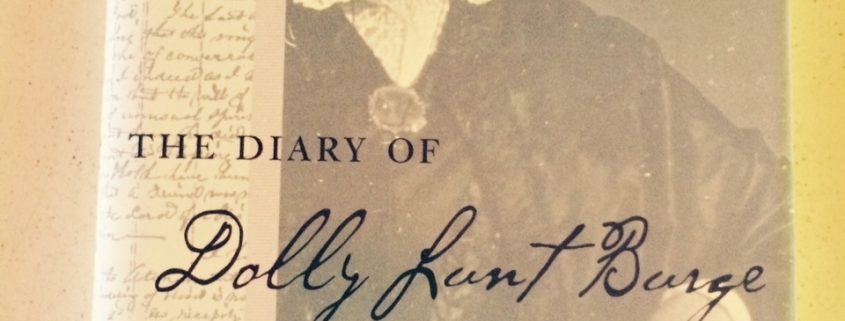In 1848 Thomas Burge’s wife Mary died, leaving him a widower with five children. In 1850 he married Dolly Lunt Lewis, a widowed schoolteacher originally from Maine who was teaching in Madison, Georgia, and brought her to Burge to share in managing the farm and to be a mother to his children.
From 1848 to 1879 Dolly kept a detailed diary which is the source of much of what is known about life at Burge and the neighboring community. The diary and excerpts have been published several times, most recently in 1997 by the University of Georgia Press, as part of the series: “Southern Voices from the Past: Women’s Letters, Diaries, and Writings.”
The latest editions, which was edited by a historian at Emory University, includes research and genealogical documentation on the slaves and freed people who lived and worked at Burge throughout the 19th and early 20th centuries. This edition of the diary also benefits from an exceptionally informative and insightful introduction, endnotes, and newly available pictures of both black and white Burges.
Dolly and Thomas’ marriage was filled with the activities of a busy farm and a large family, as well as neighborhood and church activities. In 1855 a daughter, Sadai Burge, was born. The Burges were active in the community and became founding members of Mt. Pleasant Methodist Church ( still located at the corner of U.S. 278 and Georgia highway 229, a few miles away). Dolly’s diary shows Burge as a modest and prosperous southern farm, with about 30 slaves in three core families. Dolly mentions the slaves only briefly, although passages in the diary reflect her struggle with the morality of slavery.



